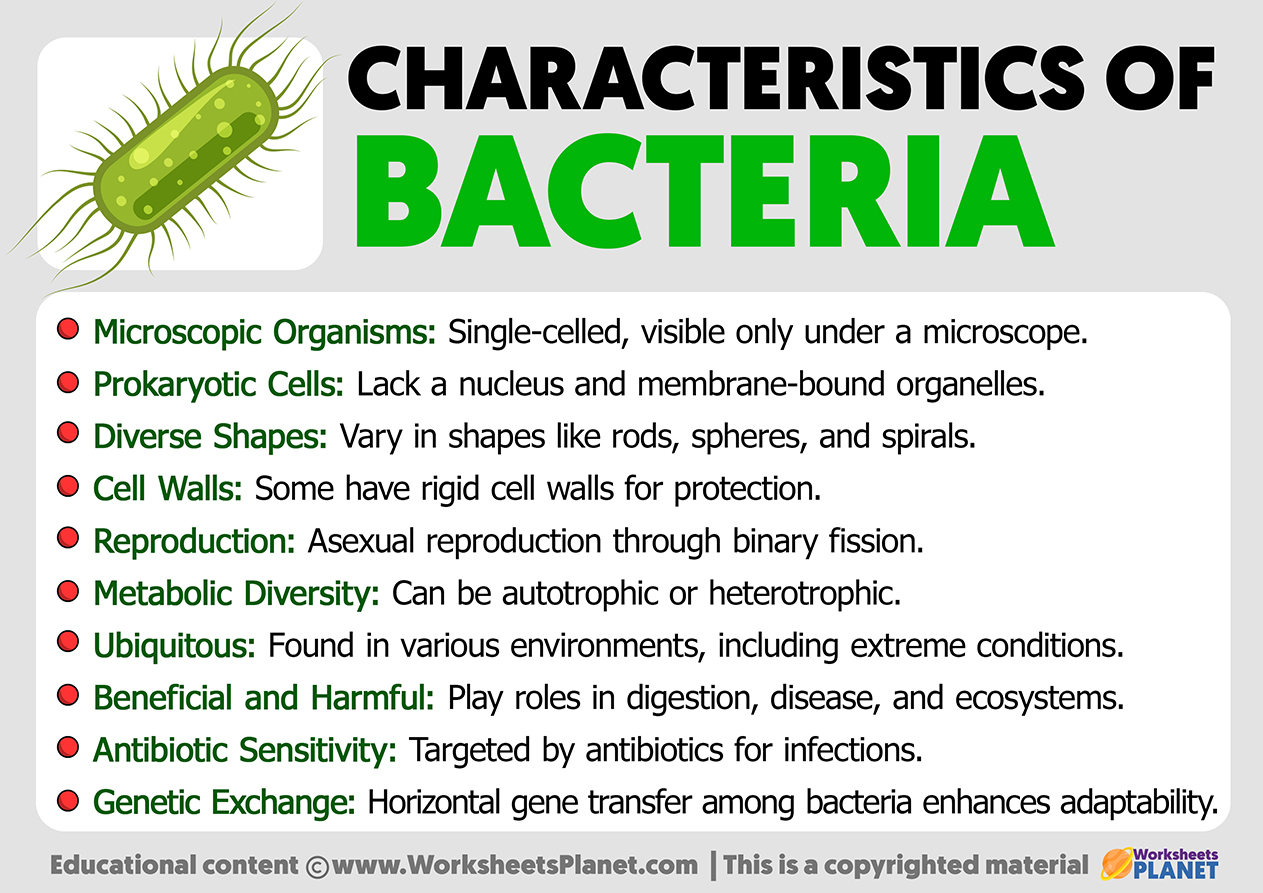Bacteria are single-celled microorganisms found in diverse environments. They have a wide range of shapes and sizes and can be beneficial or harmful.
Some bacteria are essential for processes like digestion and nutrient cycling, while others can cause diseases.

- Microscopic Organisms: Single-celled, visible only under a microscope.
- Prokaryotic Cells: Lack a nucleus and membrane-bound organelles.
- Diverse Shapes: Vary in shapes like rods, spheres, and spirals.
- Cell Walls: Some have rigid cell walls for protection.
- Reproduction: Asexual reproduction through binary fission.
- Metabolic Diversity: Can be autotrophic or heterotrophic.
- Ubiquitous: Found in various environments, including extreme conditions.
- Beneficial and Harmful: Play roles in digestion, disease, and ecosystems.
- Antibiotic Sensitivity: Targeted by antibiotics for infections.
- Genetic Exchange: Horizontal gene transfer among bacteria enhances adaptability.

